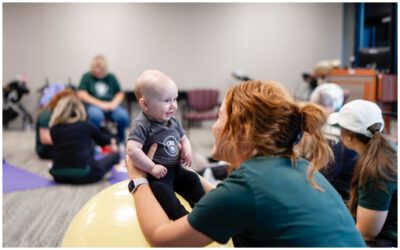[title subtitle=”words and image courtesy Alicia Agent, Director Marketing Communications, Baptist Health – Fort Smith”][/title]
School is almost out and our local parks, trails and neighborhoods will soon be filled with kids looking for fun ways to spend their summer breaks. Baptist Health pediatricians Samina Nadvi, M.D., and Manar Ibrahim, M.D., see a wide variety of injuries during the summer months. Here are three of the most common summer safety topics to consider before sending your child out the door to play.
ARKANSAS HEAT
Whether those activities involve splashing around a pool or practicing at the ballfields, extended time in the sun and heat can put kids at risk for injury. Make sure your children dress in loose, light-weight, light-colored clothing when playing outdoors. Staying hydrated will also reduce their risk of heat related illnesses.
“It’s important to make sure your kids stay hydrated by drinking more water than usual, not just when they are thirsty,” said Dr. Ibrahim. “Having low-sugar drinks like flavored waters, Pedialyte or Gatorade on hand is important if your children are going to spend time outside this summer.”
Heat-related illness happens when the body’s temperature control system is overloaded. The body normally cools itself by sweating. But under some conditions, sweating just isn’t enough. Illnesses include heat stroke, heat exhaustion, heat cramps, heat rash and sunburn. Children of all ages are at risk when exposed to excessive amounts of time in the sun and heat.
Heat stroke and heat exhaustion are the more serious illnesses and symptoms can include:
• Heavy sweating
• Changes in pulse
• Nausea or vomiting
• Dizziness or fainting
• Headache
• Red, hot skin
• Muscle cramps
Cool showers and baths can often soothe some of the symptoms of heat exhaustion. But if symptoms last longer than an hour or if your child experiences these symptoms and a temperature of more than 103 degrees Fahrenheit, they may be suffering from heat stroke and you should call 9-1-1. Very high body temperatures can lead to serious health problems and may damage the brain or other vital organs.
HEADS UP!
Concussions are often thought of as sports-related injuries, but Dr. Nadvi says there are many activities that can lead to a head injury. “Even falling off a slide or swing or injuring the head while jumping on the trampoline could cause a concussion,” said Dr. Nadvi. “Anything that jolts the head or causes a whiplash-type injury can lead to a concussion.”
The pediatricians stress that children should also wear helmets as well as elbow and knee pads when riding bicycles, scooters or skateboards to avoid serious injuries. Symptoms of a concussion can include severe pain or headache, confusion, nausea or vomiting, slowness to responding and sensitivity to light.
“Give the child time to calm down and watch their symptoms,” said Dr. Ibrahim. “If symptoms do not pass after an hour or they get worse, the child will need to be evaluated either in the doctor’s office or the emergency room. The evaluation typically involves a neurological exam and monitoring, not necessarily a CT scan.”
Recovery involves cutting back on physical and mental activities in order to allow the brain time to rest, according to Dr. Nadvi. If a child does not ease back into activity such as sports or school work, call your doctor immediately.
HEALTHY SWIMMING
Drowning is a leading cause of death in children under four, according to the Centers for Disease Control and Prevention. New guidelines released in April from the American Academy of Pediatrics (AAP) say babies can begin swimming lessons at one year old. Previously, the organization had advised against swim lessons for kids under the age of four in fear parents would become less vigilant about supervising a child who had taken swim lessons. Even if a child has had formal swim lessons, it’s still important to use other safety precautions.
“Children in the swimming pool or lakes should always wear life jackets because ‘floaties’ and pool noodles can slip off or get away, leaving the child unsafe,” Dr. Nadvi said. The pediatricians recommend that adults set a good example for their children by wearing life jackets and being within arms’ length of the children when swimming.
Another topic for parents to be aware of is recreational water illness (RWIs). These are illnesses caused by germs and chemicals found in the water we swim in. RWIs are spread by swallowing, breathing in mists or having contact with contaminated water in swimming pools, hot tubs, water parks and natural water reservoirs. Diarrhea is one of the most common recreational water illnesses.
“Diarrhea is caused by bad bacteria such as Shigella or E. coli that can be found in fecal matter,” Dr. Nadvi said. “Swallowing even a small amount could cause someone to become sick. It’s important to shower before and after you swim in order to keep yourself and others healthy.”
The physicians encourage parents to have their children take bathroom breaks when playing in the water, as well as regularly changing infants’ swim diapers to avoid contaminating the water.
While there can be health risks with any outdoor activity, the physicians say that it’s still important to stay active over the summer break and reduce “screen time,” or use of television, video games or other electronics.
Baptist Health Family and Pediatric Clinic-Ellsworth Road
5428 Ellsworth Road, Fort Smith, Arkansas
479.709.7440
For more ideas on how to keep your whole family active and healthy all summer long, visit the BHealthy blog at baptist-health.com.




